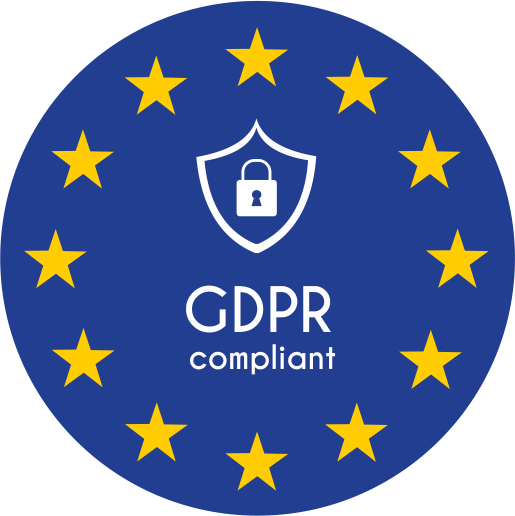Here’s the uncomfortable truth: your business emails probably aren’t as private as you think. If you’re using Gmail, Yahoo, or Outlook for sensitive communications, you’re essentially trading your privacy for convenience. Most people assume their emails are protected, but the reality is far more concerning.
Think about what’s connected to your email accounts. Banking notifications, client contracts, internal discussions, vendor communications, all flowing through systems that treat your messages as data to be analyzed and monetized.
Why Your “Private” Email Isn’t Actually Private
Most popular email services scan your inbox content, track your behavior, and monetize your data. This practice is buried in lengthy terms of service that few people read. Gmail, for instance, lacks end-to-end encryption and actively analyzes user data for targeted advertising.
Here’s what actually happens to your emails:
- Content gets scanned for advertising insights
- Metadata gets collected and stored indefinitely
- Behavioral patterns get tracked across services
- Your data becomes a product to be sold
The global Email Encryption market jumped from $11.9 billion in 2024 to a projected $36.2 billion by 2030. That’s not coincidence, it’s people waking up to privacy reality.
What Real Email Privacy Actually Looks Like
True email privacy requires specific technical safeguards that most providers simply don’t offer. Here’s what genuinely private email includes:
Zero-access encryption means even your email provider can’t read your messages. Your emails get encrypted directly on your device before transmission. Only the intended recipient can decrypt them.
No data mining ensures your communications can’t be sold or analyzed for advertising. Your messages remain yours alone.
Secure signup processes keep your account creation details private. No sharing with third parties or cross-platform tracking.
Disposable addresses let you create temporary email addresses for specific purposes. This reduces your digital footprint and protects your primary inbox from spam.
The Growing Threat Landscape Targeting Your Business
Email security in 2025 is deteriorating rapidly. Cyber criminals send an estimated 3.4 billion malicious emails daily. That’s not a typo: billion with a ‘B’. And 87% of security professionals report their organizations encountered AI-driven cyber attacks in the last year.
Business Email Compromise (BEC) attacks represent the biggest threat to your bottom line. These attacks accounted for 73% of all reported cyber incidents in 2024. Even small companies face serious risk: businesses with fewer than 1,000 employees have a 70% weekly probability of experiencing at least one BEC attack.
The financial damage is staggering. BEC attacks cost an average of $4.89 million per incident. The average wire transfer request in a BEC attack was $24,586 at the start of 2025. Among organizations working with Managed Service Providers, one in five lost money through BEC attacks over the previous 12 months.
Specific Threats Targeting Your Inbox Right Now
Phishing remains the top concern for IT leaders, with 47% ranking it as their primary worry. Approximately 66% of phishing attempts target organizational resources using credential theft and fake billing documents. The remaining 34% go after personal information, particularly financial data.
Microsoft 365 users face heightened risk. A concerning 79% of M365 users experienced cyber incidents in 2025. In healthcare specifically, 52% of breaches now occur on Microsoft 365: up from 43% in 2024.
Pretexting attacks nearly doubled in frequency last year. These sophisticated impersonation tactics fool employees into believing they’re communicating with trusted executives or partners. Attackers research their targets extensively before striking.
Small businesses get hit hardest because they often lack dedicated IT security staff. For every 323 emails a small business receives, one contains malware or phishing attempts.
For more specific guidance on email security measures, check out our detailed guide at The CW Corner Email Security.
What Email Security Protocols Actually Protect
Proper email security establishes three fundamental protections that work together:
Confidentiality ensures only intended recipients can read your email content. This involves encryption during transmission and storage.
Integrity guarantees your message arrives exactly as you sent it. No tampering or modification occurs during delivery.
Authenticity proves emails actually come from their claimed sender. This prevents spoofing and impersonation attacks.
Organizations implementing comprehensive email security protocols experience 70% fewer successful email-based attacks compared to those with minimal protections. The investment pays for itself quickly when you consider the average cost of a single breach.
Taking Action: What You Can Do Today
Don’t wait for a security incident to force your hand. Here are immediate steps you can take:
Evaluate your current email provider honestly. If you’re using free services for business communications, you’re accepting significant privacy and security risks.
Implement multi-factor authentication on all email accounts immediately. This single step prevents most credential-based attacks.
Train your team to recognize phishing attempts and BEC tactics. 95% of security leaders expect to encounter email security problems this year: preparation matters.
Consider encrypted email services for sensitive communications. The cost is minimal compared to potential breach expenses.
Establish clear protocols for financial requests and vendor communications. Verify all wire transfer requests through separate communication channels.
The Bottom Line on Email Privacy and Security
In 2025, assuming your emails are private or secure without taking specific action is dangerous. The old trade of convenience for privacy is no longer acceptable when cyber threats evolve at unprecedented speed.
Privacy-focused email services with end-to-end encryption, combined with proper security awareness training and technical controls, aren’t luxuries: they’re business necessities. Whether you’re a solo entrepreneur or managing a team, your email security directly impacts your financial security.
The question isn’t whether you need to worry about email privacy and security. The question is whether you’re willing to take action before becoming another statistic. Start with one improvement today, then build from there. Your future self will thank you for taking email security seriously now rather than learning its importance the hard way.
For more security guidance and web development insights, visit us at The CharlesWorks Corner. Don’t risk potential losses when practical solutions exist.



 European Union General Data Protection Regulation Compliant
European Union General Data Protection Regulation Compliant